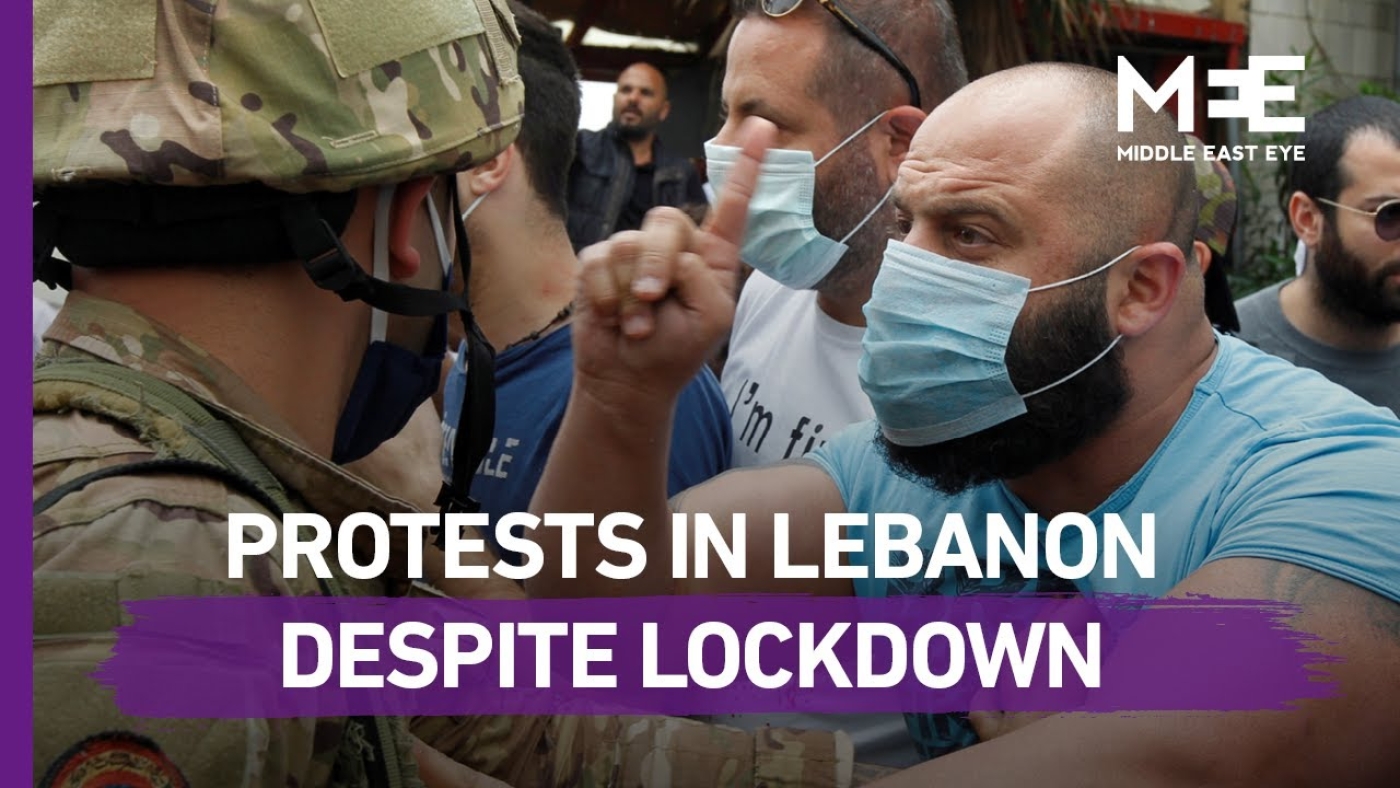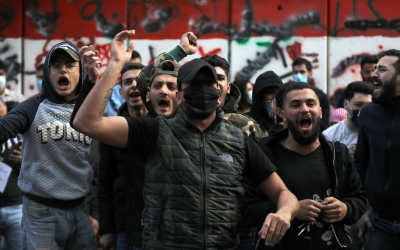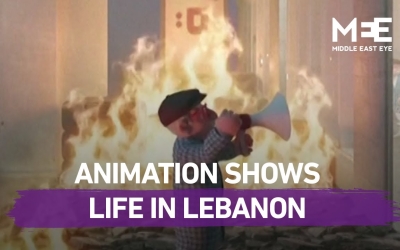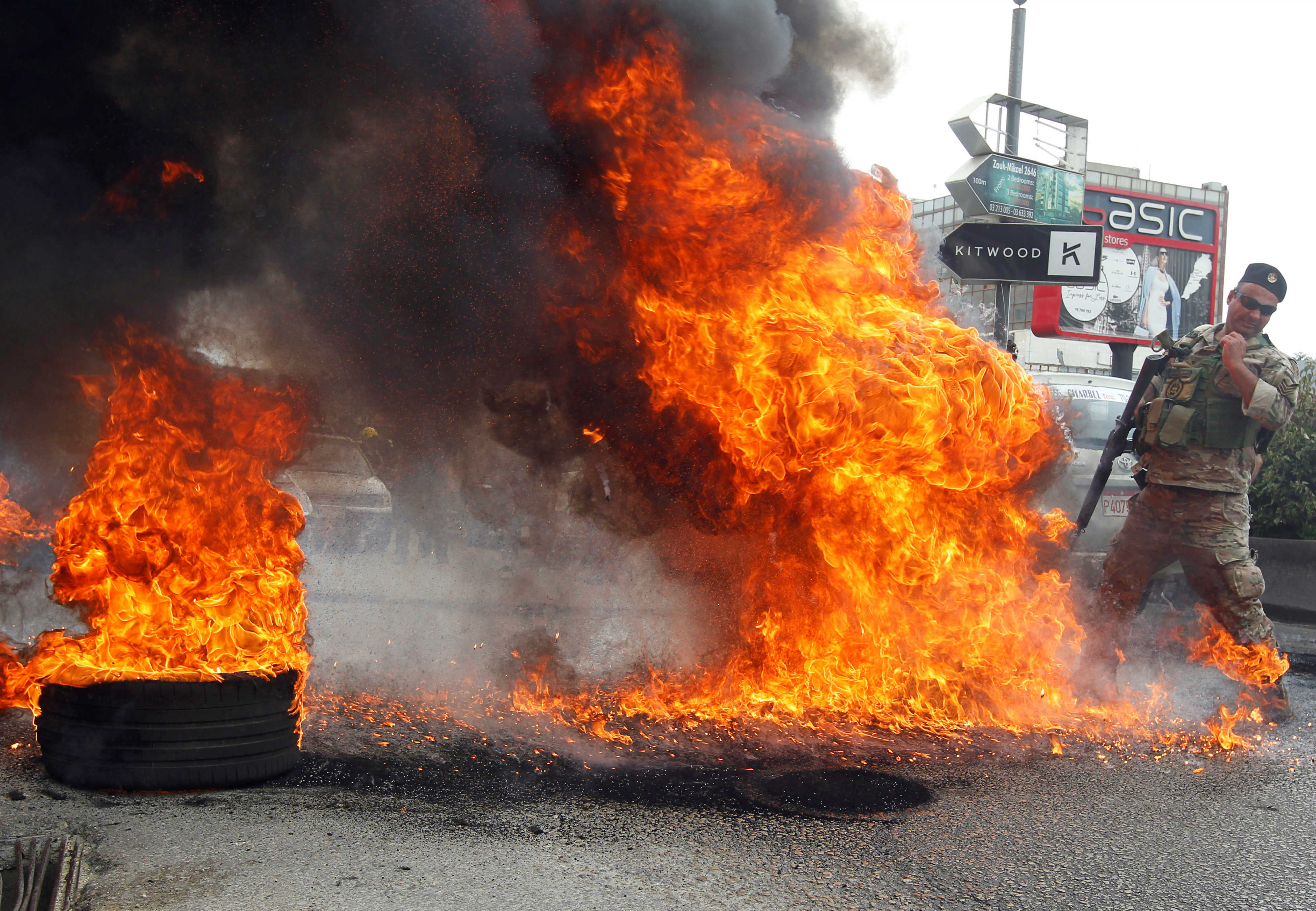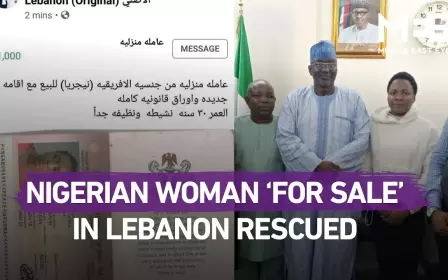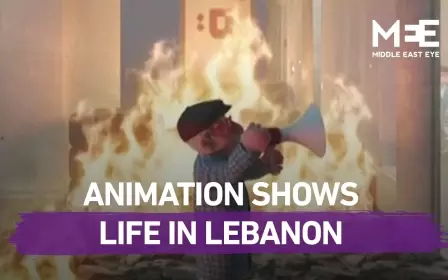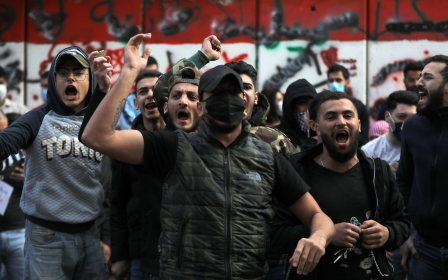Protester dies after clashes with army in Lebanon's Tripoli
A protester has been shot and killed during unrest in the northern Lebanese city of Tripoli overnight, security and medical sources said on Tuesday, as an economic crisis brought demonstrators back onto the streets.
The man who died was in his 20s and it was not immediately clear who was responsible for his death, the sources told Reuters.
Protesters returned on Tuesday, lighting two commercial banks on fire and smashing their facades, prompting the army to redeploy.
Dozens of soldiers positioned themselves in a main commercial street lined with several banks, and some fired rubber bullets and tear gas to repel protesters.
Hundreds of protesters had gathered late on Monday over the deteriorating economy, triggering clashes with security forces despite a coronavirus lockdown.
Men, women and children had marched through the streets, chanting "revolution, revolution".
The protesters tried to reach the house of a parliamentarian but were pushed back by the army, sparking clashes, an AFP correspondent said.
Some demonstrators threw stones, and the army shot into the air to try to disperse the crowd in the area of Al-Nour Square.
The facades of several banks were smashed with at least one set on fire as protests, a witness told Reuters.
The army said a fire-bomb was thrown at one of its vehicles and a hand grenade was hurled at a patrol, lightly wounding two soldiers.
Public and private property had been attacked and banks set on fire, it said.
'A number of infiltrators'
The army blamed the trouble on "a number of infiltrators" and called on peaceful protesters to quickly leave the streets.
A later army statement said 40 soldiers were wounded in Tripoli and elsewhere after patrols looking to reopen cut roadways were hit by stones. Twenty protesters were also reported injured.
Three banks and several ATMs in Tripoli were burned and nine protesters were arrested, the statement said.
The banking association declared all banks in Tripoli shut from Tuesday until security is restored, saying banks had been targeted in "serious attacks and rioting".
"There is a lot of anger among people because of the economic situation they are experiencing and the crazy rise in dollar price. The purchasing power of Lebanese has become non-existent," Samer Diblis, an activist from Tripoli, told Reuters.
"We are surely heading to a much worse place... If it is not solved with politics, this situation will surely keep on deteriorating," said Diblis.
Lebanon's banks have been a frequent target of protesters during the financial and economic crisis that has led to the collapse in the value of the Lebanese pound and frozen savers out of their deposits.
The Red Cross said it had transported three people to hospital, and treated others at the scene.
Lebanon is facing its worst economic crisis since the 1975-1990 civil war, now compounded by a nationwide lockdown to stem the spread of the coronavirus.
The Lebanese pound has lost more than half of its value, and prices have soared.
Tripoli has been especially hard hit because more than half of its population had already been living at or below the poverty line.
When mass protests erupted across Lebanon in October against perceived official corruption and mismanagement, Tripoli fast became known as the "bride" of the street movement.
Saida protests
In the southern city of Saida, protesters threw stones and fire crackers at the central bank headquarters late on Monday, the National News Agency said.
Earlier in the day, protesters attempted to block roads elsewhere in the country. In Zouk, north of the capital Beirut, some roads were blocked by burning tyres.
On 17 April, hundreds demonstrated in Tripoli to mark six months since the start of the protests, which had petered out in recent months as a new government attempts to tackle the economy.
Late Saturday, assailants lobbed an explosive device at a bank in Saida.
The attack came a day after Prime Minister Hassan Diab said Lebanese bank deposits had plunged $5.7 bn in the first two months of the year, despite curbs on withdrawals and a ban on transfers abroad.
Middle East Eye delivers independent and unrivalled coverage and analysis of the Middle East, North Africa and beyond. To learn more about republishing this content and the associated fees, please fill out this form. More about MEE can be found here.


